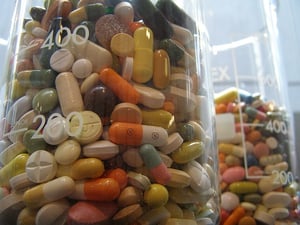Real Life Claims: A child at a home daycare facility was given aspirin after falling down, but the child suffered from an aspirin allergy which triggered an asthma attack. The child’s aspirin allergy was known by his parents, but undisclosed to the facility. The facility had permission to administer the child’s inhaler in case of an asthma attack. The aspirin induced a reaction so severe the inhaler was ineffective in stopping the attack and emergency personnel were required to treat and stop the child’s allergic reaction and asthma attack.
Each year more and more children are taking prescription medications in the United States. Children are prescribed medications for a wide variety of conditions including asthma, diabetes, attention deficit, psychological disorders, and many more. Attention to detail is required to ensure that medication for these conditions is given correctly. Methods of administering medication include oral, eye drops, ear drops, inhalers, and injections.
As the amount of children taking medications rise, so does the number of accidents involving improper doses, mixed up prescriptions, and incorrect administration. The consequences of incorrectly administering medication can range from minor to life-threatening.
Safety Precautions

- No medication – including common over-the-counter medications – should be kept on-site for general use. Only medicine for use by a single child which was supplied by that child’s parent or guardian should be used.
- All medication should be clearly labeled and stored in a locked cabinet or drawer. If the medication needs to be refrigerated make sure it is kept out of reach of children and kept secure.
- Inspect prescription medication carefully. All prescription medications should be in their original, child-proof containers and include the following:
- The child’s first and last name
- The physician’s name and contact information
- The filled date and expiration date on the container
- Instructions for administering, storing, and disposing the medication
- Inspect over-the-counter medication. Over the counter medication should contain the following:
- Label with the child’s first and last name
- The date given to the facility and the expiration date
- Instructions for administering, storing, and disposing the medication
- Name and contact information of the health care professional who recommended the medication
- Never give a child a medication that was prescribed for some one else. This policy applies for siblings and over-the-counter medications.
- Use proper measuring utensils when administering medications and make sure to thoroughly clean them after every use.
- Always go over medication instructions with parents before administering any medications to make sure they are administered properly. For example, some medications require being taken with meals and others are meant to be given at specific times of the day.
- If you have any questions or concerns consult the child’s parents, guardians, doctor, or pharmacist.
- If any medication requires injections make sure there is a trained professional capable of giving the medication. If no professional is available, inform the parents that the medication cannot be administered.
Policies & Procedures for Administering Medicine to Children
- Permission Form: Consent forms filled out and signed by parents detailing what specific medications can be given to children and when they can be given.
- Medication Administration Form: These forms should be used to document every time a medication was administered and if the child showed any reactions to the medication
- Medical Information Form: Filled out by parents when children are registered for programs. They should contain all pertinent medical information, known allergies, and contacts. Also, if the child has any diagnosed allergies they should be encouraged to wear medical ID bracelets as an extra precaution.




